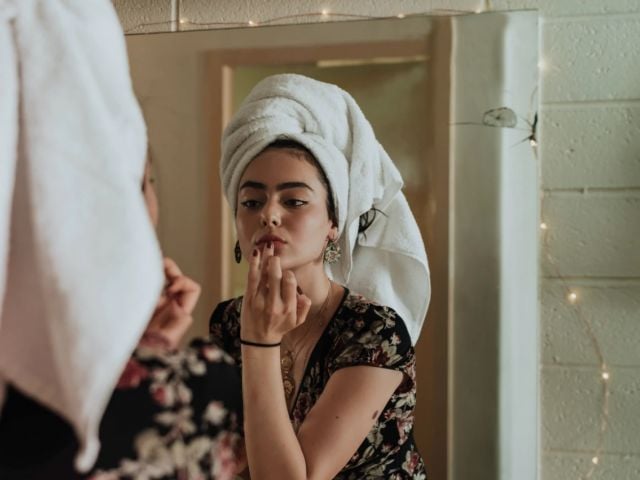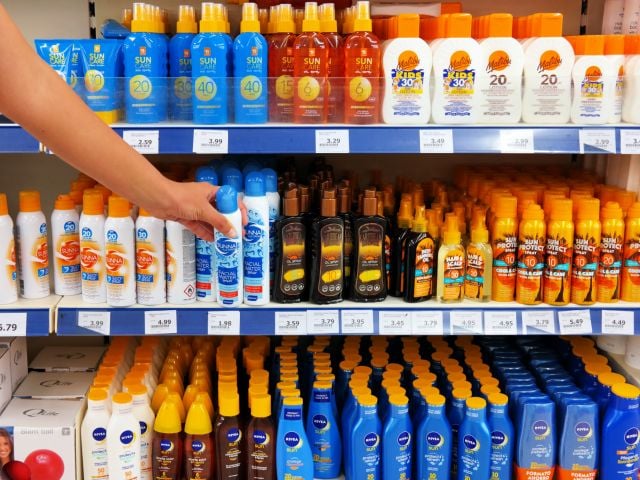By Lisa Frack and Dave Andrews Sunburns are inconvenient and sometimes painful, but they always seem to go away in a few days. Melanoma on quite the other hand, is not something that I want to mess with.
To address sunscreen efficacy with regards to skin cancer, it is useful to break the discussion into melanoma and non-melanoma skin cancers. Before we get started, it should be cautioned that according to the FDA, "data fails to show that sunscreen use alone helps prevent premature skin aging and skin cancer." Does sunscreen use help prevent non-melanoma skin cancers?
Possibly <-> Probably
There are over 1,000,000 new cases of non-melanoma skin cancer per year. The two most common types are primary basal cell cancer and squamous cell cancer. According to the National Cancer Institute your risk of "skin cancer is related to lifetime exposure to UV radiation." They have an excellent online booklet with information on skin cancer that is very informative. Overall, regular sunscreen use reduces total UV exposure and seems to be helpful in reducing the risk for non-melanoma skin cancers.
The National Cancer Institute recommends protecting yourself from UV radiation with clothing, sunscreen lotions, minimizing time in the sun, and avoiding tanning booths.
Does sunscreen use prevent melanoma?
Unknown
According to the National Cancer Institute: "No one knows the exact causes of melanoma."
It is too bad that there is no consensus of studies showing that sunscreen use will reduce the risk? Should I take heart that there seems to be no evidence that sunscreen use increases melanoma risk?
Melanoma has been increasing at about 3% a year for nearly 70 years. According to the American Academy of Dermatology, malignant melanomas are responsible for 75% of skin cancer deaths and are the sixth most common cancer in American men and women.
Risk factors for melanoma from the National Cancer Institute
- A large number dysplastic nevus (common abnormal moles that are generally larger and have irregular borders)
- Fair skin
- Light hair color
- Family history
- Serve sunburn(s)
- UV radiation
For melanoma a few of the unexplained findings are that outdoor works have a lower melanoma rate than indoor workers, melanoma rates are not related to cumulative exposure, and melanoma incidence decreases on chronically exposed body sites. Recent work proposes that melanoma is initiated by intense UVB exposure while growth is promoted by UVA exposure and exacerbated by decreased vitamin D3 levels.
Currently the only action spectrum (the wavelength dependent probability) for melanoma has been measured in zebra fish with melanin containing skin cells. In this work on melanoma induction in fish it was noted that "UVB irradiation would only account for 5-10% of the melanoma-inducing irradiation effect from sunlight." There is some disagreement in the literature and to date we know of no researchers whom have determined the action spectrum for human.
Vitamin D3
Some exposure to sunlight is beneficial because it forms previtamin D3 through ultraviolet photolysis of 7-dehydrocholestrol. Optimal levels of vitamin D3 protect against internal cancers and the sun is our main source of this vitamin. The biological action primarily responsible for D3 conversion occurs in the UVB portion of the sun spectrum, where sunscreens are most effective and block this action. Interestingly exposure to UVA light leads to the photodegradation of Vitamin D3. This indicates that a sunscreen that blocks only the UVB portion of the spectrum may both decrease the beneficial production of previtamin D3 and breakdown the existing vitamin D3 through excess UVA exposure.
Having met nearly every risk factor for melanoma and non-melanoma skin cancer what will I be doing?
The most prudent sun protection measure is to avoid excess exposure to sunlight through the use of clothing and broad-spectrum sunscreens. While I will use sunscreen when necessary I understand that it will not necessarily protect me from skin cancer. Avoiding sunburns will be a top priority as will keeping a watchful eye on my skin.



